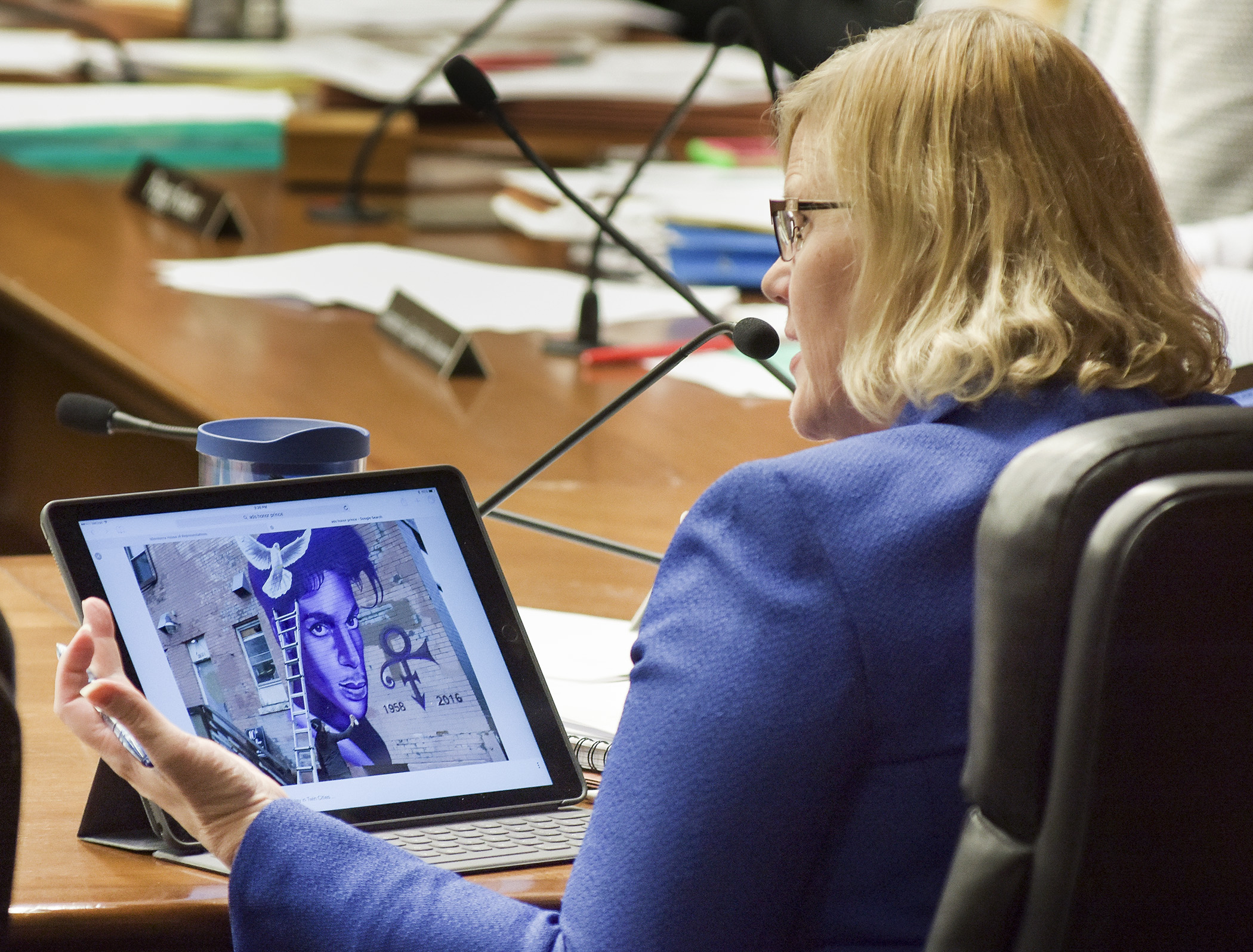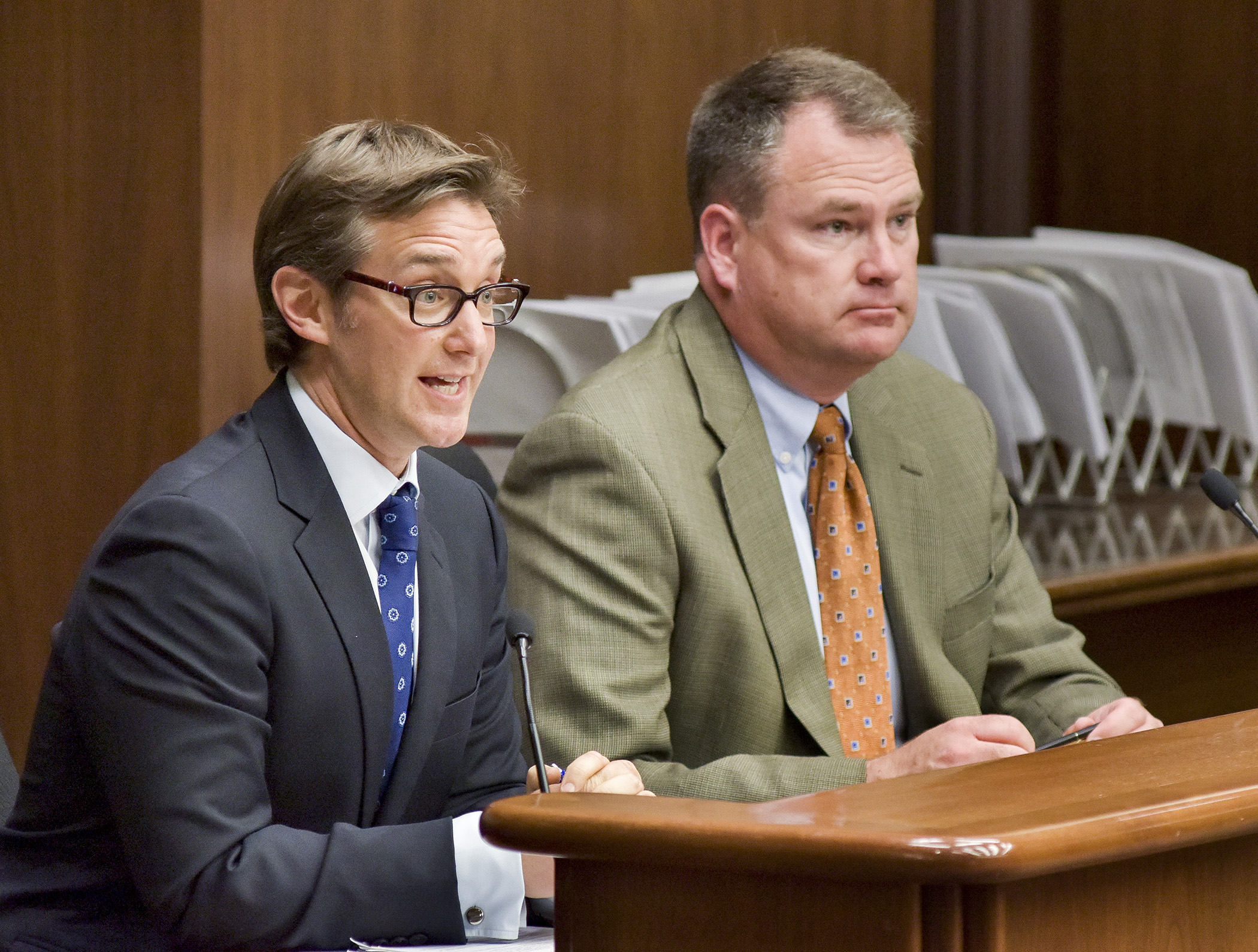PRINCE bill would protect publicity rights after death

Legislators are being asked by potential heirs to Prince’s estate to protect his image, name and other publicity rights that became synonymous with the man himself.
HF3994, sponsored by Rep. Joe Hoppe (R-Chaska), would set limitations on the commercial use of a person’s publicity rights, such as name, image, voice and likeness after death. Dubbed PRINCE, short for the “Personal Rights in Names Can Endure,” the bill would define post-mortem commercial rights and usage, distinguish authorized and non-authorized use, govern fair use and provide a statute of limitations for use by heirs.
Approved by the House Civil Law and Data Practices Committee Tuesday, it now heads to the House Floor. A companion, SF3609, sponsored by Sen. Bobby Joe Champion (DFL-Mpls), awaits action by the Senate Judiciary Committee.
Seventeen other states have some form of legal right to control publicity after death.
Under the bill, authorized heirs would be allowed to use a person’s publicity rights, unless specifically defined otherwise in a will, for a minimum of 50 years after a death, and up to 100 years, as long as the rights have not been abandoned. In the absence of a will defining commercial publicity rights, they would be transferable to estate heirs. If a person had previously outlined or contracted exclusive commercial licensing rights prior to their death, the bill’s provisions would be moot.
WATCH Committee discussion of the bill on YouTube
Legal remedies for unauthorized use would include an injunction to prevent the unauthorized use, and damages in an amount equal to the profits earned through use. All remedies would be cumulative, and in addition to others already available in existing law.
 Joel Leviton, a partner with Stinson Leonard Street LLP, left, testifies before the House Civil Law and Data Practices Committee May 10 in support of a bill sponsored by Rep. Joe Hoppe, right, that would recognize property rights in a person’s name, voice, signature or likeness and prohibit unauthorized use. Photo by Andrew VonBank
Joel Leviton, a partner with Stinson Leonard Street LLP, left, testifies before the House Civil Law and Data Practices Committee May 10 in support of a bill sponsored by Rep. Joe Hoppe, right, that would recognize property rights in a person’s name, voice, signature or likeness and prohibit unauthorized use. Photo by Andrew VonBankPrince was found dead at his home in Chanhassen on April 21. No official cause of death has been released. Since his death, it has been widely reported that he left no will, leaving his family and potential heirs of his estate to sort out the fiscal remains.
“The clarity of the law provides all people to prohibit unauthorized commercial use after death,” said Joel Leviton, a partner at Stinson Leonard Street LLP. According to Leviton, Prince is the first Minnesota-born celebrity to die and go through a post-mortem probate involving millions in assets.
In the weeks following Prince’s death, the Twin Cities metropolitan area has seen numerous benefit and tribute concerts and parties to honor the beloved Minneapolis musician. Although the events have been mostly honorary, other nefarious entrepreneurs have turned toward profit instead, selling bootlegged t-shirts and hats with the icons name and face outside his former Paisley Park home.
“The asset that is Prince’s identity itself begins to diminish in value… there are just too many people who can sell t-shirts and merchandise with Prince’s image,” Leviton said.
Although universally favorable to the bill’s intent, some question if it goes too far in establishing rights, and if it wasn’t being given enough consideration toward future implications.
“Everything you put into the scope of publicity rights you take away from first amendment rights of expression. It creates a pretty substantial weapon that will eventually be picked up by not so well-meaning folks,” said Mark Anfinson, attorney for the Minnesota Newspaper Association. “We need some time to work this out, and how do you do that in two weeks? You can’t.”
Related Articles
Search Session Daily
Advanced Search OptionsPriority Dailies
Ways and Means Committee OKs proposed $512 million supplemental budget on party-line vote
By Mike Cook Meeting more needs or fiscal irresponsibility is one way to sum up the differences among the two parties on a supplemental spending package a year after a $72 billion state budg...
Meeting more needs or fiscal irresponsibility is one way to sum up the differences among the two parties on a supplemental spending package a year after a $72 billion state budg...
Minnesota’s projected budget surplus balloons to $3.7 billion, but fiscal pressure still looms
By Rob Hubbard Just as Minnesota has experienced a warmer winter than usual, so has the state’s budget outlook warmed over the past few months.
On Thursday, Minnesota Management and Budget...
Just as Minnesota has experienced a warmer winter than usual, so has the state’s budget outlook warmed over the past few months.
On Thursday, Minnesota Management and Budget...